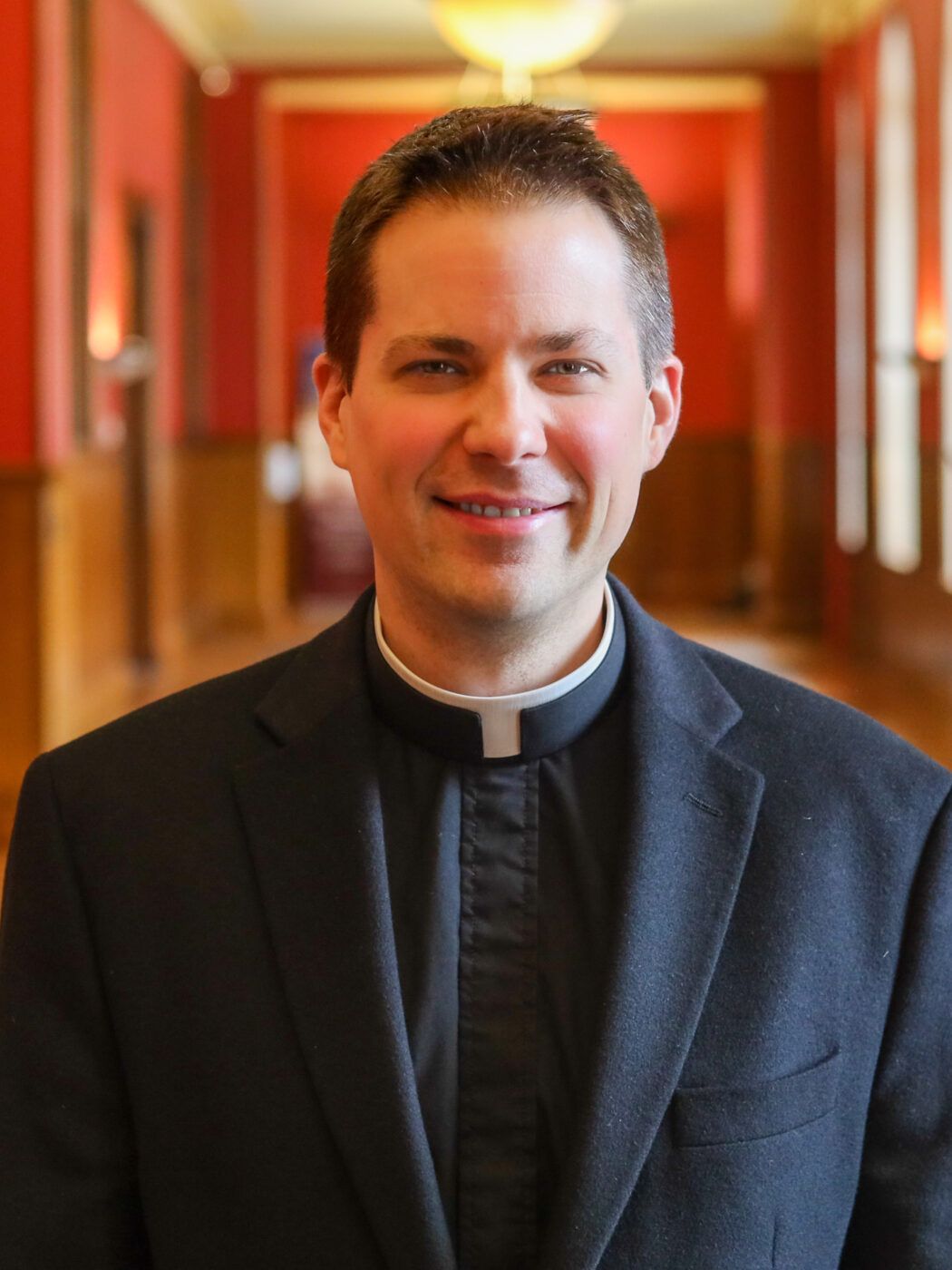“Who can lay hands on the Lord’s anointed and remain unpunished?” In refusing to take vengeance on the murderous King Saul, David stands as a luminous type of his greater descendant: the Son of David, the Lord Jesus Christ, who is the inexhaustible wellspring of Divine Mercy. The typological meaning here is even richer than this connection. It is richer because it is more complicated than it seems on the surface. Those who know their Old Testament will recall that David too is anointed by this point in his life (see 1 Samuel 16). We therefore have two anointed figures, two kings in the Desert of Ziph. David’s anointing, however, does not give him license to tear down his fellow anointed one. He realizes that both he and his enemy have been marked by the Lord. That another shares his gift does not lessen his reverence for it.
Why is this important? It is important because every baptized person here in this chapel and beyond these walls enjoys the stature of being the Lord’s anointed. At your baptism you were anointed on the crown of your head with sacred chrism. This signified the royal dignity you came to share by being united to Christ as a member of His body. This anointing, flowing from the fullness of Christ, far surpasses what Saul and David were given, for their kingship was merely a foreshadowing of the greater gifts that the Holy Spirit has poured out upon the royal priesthood of the baptized.
Like Saul and David, we stand here together as anointed kings. And like Saul felt toward David, we often fall prey to petty rivalries and resentments. The truth is that when you are deeply involved in the life of the Church, it’s fellow anointed ones, fellow Christians that will hurt us the most. In the bitterness that such conflicts stir in us, we can easily forget that Christ has marked our adversary as His own. He even dwells in him or her, wounded and grieved by the sin that has wounded and grieved us. It’s the same when we sin against others. We grieve the one we sin against and the One who lives in him or her and in us.
This means that extending mercy is more than simply imitating Christ. It means that mercy is about the life of Christ flowing from one abode of His to another, one member of His to another member. Our salvation depends on this free circulation of mercy.
To be a living member of His Body means that the flow of mercy from His heart into our own is likewise shared with others. The Church is thus vivified by an exchange of mercy flowing down from her Head. When that mercy flows to us but is not shared with our neighbors, we slowly die. We are like a limb suffering from poor circulation. When we receive and give it freely, never withholding it from anyone, we come alive and even draw others who are not yet members of His Body to be joined to Him.
This is why God’s mercy is not unconditional. His love is unconditional, yes, but His mercy is otherwise. God’s mercy has a big condition and that condition is that we share it. Mercy is ours only to the extent that we offer it to others.
“Who can lay hands on the Lord’s anointed and remain unpunished?” Christ is hidden in those who offend us. To withhold mercy from one so anointed is to double the grief of Christ. To share His mercy, on the other hand, strengthens us in our anointing and offers our enemies yet another chance to be reborn to theirs.


